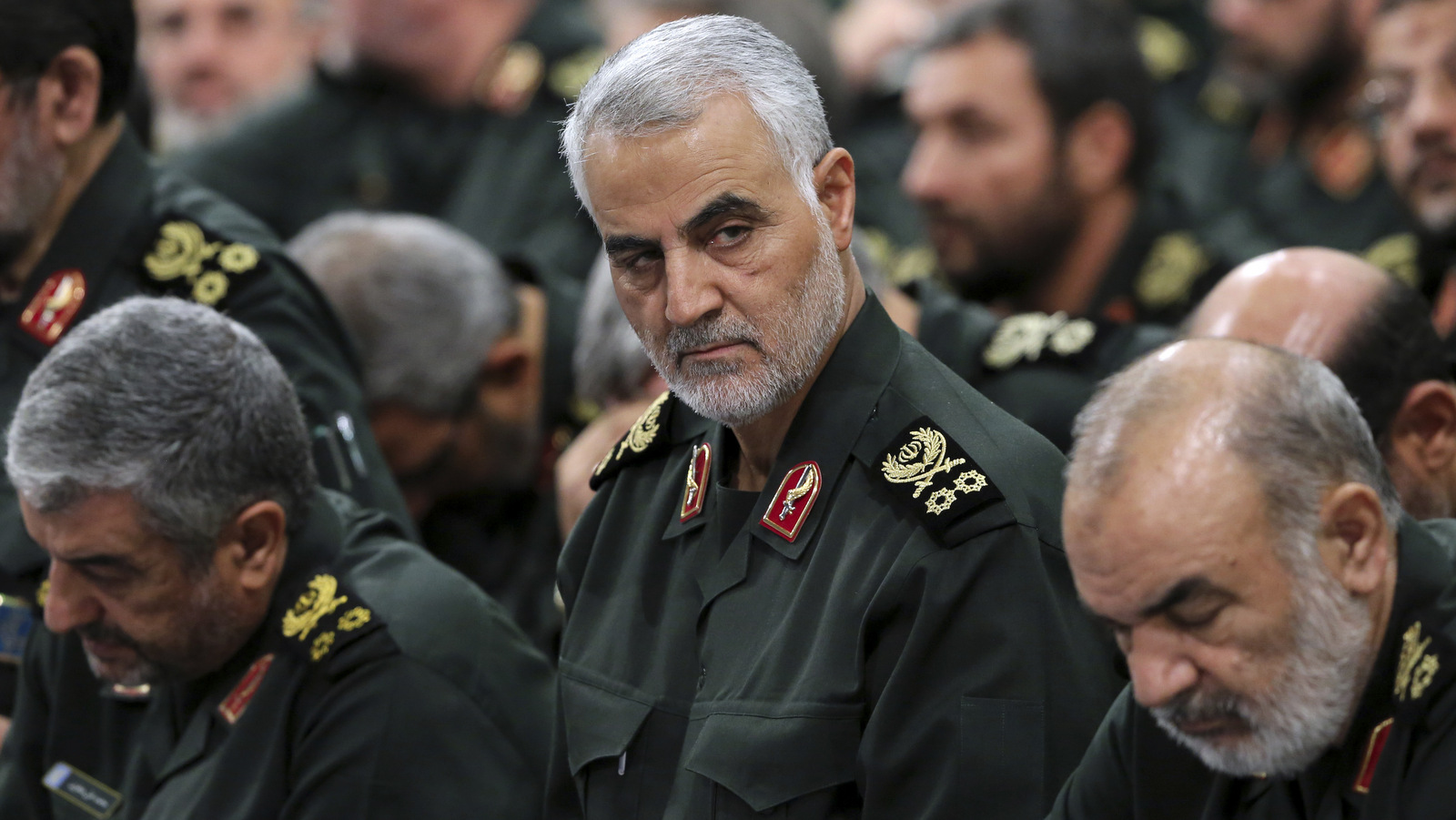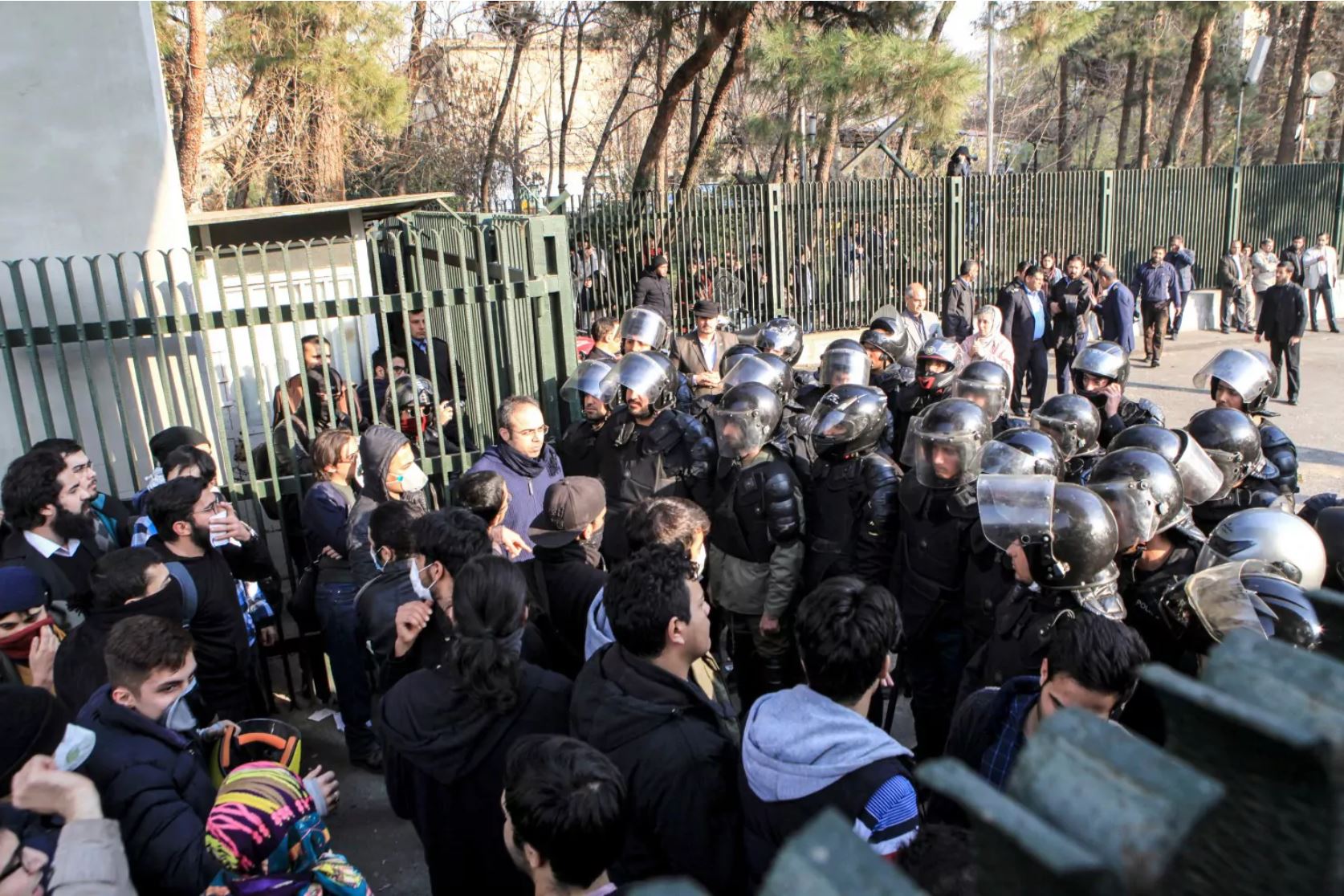Above Photo: From Mintpressnews.com
With the Trump and Netanyahu administrations now working in lockstep, U.S.-Israeli hostility towards Iran has now ripened into a plan to repeat what befell Syria over six years ago – the hijacking of minor protests and their transformation into the cover for a foreign-funded insurgency intent on toppling Iran’s elected government.
TEHRAN, IRAN (Analysis) – Using the recent protests as cover, the governments of the United States and Israel are advancing a much larger plan for covert regime change against the Iranian government, one born out of the “secret deal” negotiated and signed between the two countries right before the widely covered but relatively small protests in Iran began in late December.
That deal, negotiated between National Security Adviser and neocon darling H.R. McMaster and his Israeli counterpart Meir Ben-Shabbat, secured the full cooperation of the Trump and Netanyahu administrations in targeting Iran’s “threatening activities” through a series of “memorandums of understanding.” As the Times of Israel reported, such cooperation is ultimately expected to translate into “steps on the ground” — a vague way of implying that aggressive actions will soon target Iran, including potential military action.
Yet, since the agreement was announced in the press, the evidence seems to point to the development of a more covert operation that is set to begin with the assassination of a top Iranian general.
Reviving a once-thwarted assassination plan

On Monday, Israeli newspaper Haaretz reported that an “American-Israeli agreement” had been forged that determined that Iranian general Qassem Soleimani, leader of the Quds Force active in fighting the Wahhabist insurgency in Syria, is a “threat to the two countries’ interests in the region.” This understanding subsequently resulted in the U.S. government giving Israel the “green light” to assassinate Soleimani, a plan Israel had unsuccessfully attempted to carry out three years earlier. The Obama administration had thwarted that operation, when Israel was allegedly “on the verge” of killing Soleimani near Damascus, by warning the Iranian government of the plan.
However, the U.S.’ failure to enact regime change in Syria – a close ally of Iran – and the Trump administration’s close relationship with Israel have apparently led the U.S. government to openly voice its support for Israel to assassinate a top general of Iran’s Revolutionary Guard, a move that would likely embroil Iran and Israel – and perhaps the rest of the Middle East – in war.
Make no mistake: This. Will. Start. A. War.
-and sadly, that’s exactly what both, Trump and Netanyahu are aiming at. #IranProtestshttps://t.co/63C5ukzFLB
— Amir (@AmirAminiMD) January 2, 2018
Indeed, Soleimani’s force in Syria has been instrumental in aiding the Syrian government in eliminating the largely foreign-funded Wahhabist insurgency that was intended to remove Syrian president Bashar al-Assad from power, a key strategic goal of both the U.S. and Israel in the region.
Furthermore — with the disintegration of Daesh (ISIS) in Syria and, along with it, the disintegration of the U.S.-led coalition’s excuse for its illegal presence in Syria — Soleimani delivered a forceful message to the U.S. forces stationed in Northwest Syria. In that message, delivered to the U.S. via the Russian military, Soleimani warned the U.S. military command in Syria that it best remove all U.S. forces currently present in Syria “or the doors of hell will open up,” adding that “I advise you leave by your own will or you will be forced to.”
Russia later echoed Soleimani, albeit less forcefully, by advising that U.S. forces vacate Syria, as the terrorist threat has been largely eliminated and the U.S.’ continued presence in the country would be in violation of the Syrian government’s sovereignty.
However, the U.S. has made it clear that it has no plans to leave Syria anytime soon. Last Friday, U.S. Secretary of Defense James Mattis insisted that the “war is not over” in Syria or Iraq, as much works remain to be done to prevent a potential resurgence of Daesh. Mattis’ words came just days after reports surfaced alleging that U.S. forces in Northwestern Syria are retraining Daesh fighters from areas “liberated” by U.S. proxy forces.
The endgame of this U.S. operation is likely the exportation of insurgents from Northwestern Syria through Iraqi Kurdistan, where U.S. forces are still present, and into eastern Iran where the fomentation of an armed insurgency will be used to destabilize and hijack the protests currently taking place in Iran. Most of the recent growth in reported unrest has been concentrated in eastern Iran.
In order for such a program to achieve its goal, the U.S. must be able to continue illegally occupying northwestern Syria. With Soleimani out of the picture and the Quds Force in Syria thus weakened, that occupation would be significantly easier to prolong.
Building blocks of regime-change insurgency: sanctions, protests, “peaceful” uprising

While a U.S.-Israeli plan to create a terrorist pipeline from Syria to Iran has yet to be definitively established, regime-change plans specifically targeting Iran have included such strategies for toppling the Iranian government. For instance, the Brookings Institution — a prominent, hawkish U.S. think tank — published a manual in 2009 titled “Which Path to Persia? Options for a New American Strategy toward Iran.” The manual, divided into four parts, includes an entire section devoted to enacting regime change. This section includes three chapters, the first two of which focus on “supporting a popular uprising” and “inspiring an insurgency” by “supporting Iranian minority and opposition groups.”
When the protests against the neoliberal economic policies of the Rouhani-led government began just days ago, the U.S. and Israeli political establishments — and their supporters — quickly took advantage of the situation. Though the protests have been small in size, intentional misreporting from the corporate media and on social media has sought to combine these protests with regime-change aspirations while also exaggerating their size.
Both neocons and their liberal counterparts have posted publicly their support for the protests, claiming to support the Iranian people despite their past support for the sanctions that damaged Iran’s economy – the very factor that allegedly inspired the protests in the first place.
In the first 24 Hours of #IranianProtests ,
72,200 tweeted w/ this hashtag ” #تظاهرات_سراسرى ”
that invited Iranian to protest ,
-74% of them were from out of #Iran
-35% of them were in Arabic Language
-Saudis tweets 27% were more than Iranians 25%
-UK in 3rd place at 7% pic.twitter.com/NZtMn7n9qN— Goudarz Eghtedari (@goudarz) December 31, 2017
The Iranian people, especially the young, are protesting for the freedom and future they deserve. I hope their government responds peacefully and supports their hopes.
— Hillary Clinton (@HillaryClinton) December 31, 2017
Though the plan to support a popular uprising depended on the organic emergence of some unrest, however minimal, within Iran, the plan to inspire an insurgency requires more careful preparation. Given the establishment of a new CIA “mission center” focused on “turning up the heat” in Iran last June — which has sought to make Iran “a higher priority target for American spies” — along with the U.S. operation in Syria, the groundwork for such an insurgency has now been laid.
Of particular concern is the fact that the CIA officer in charge of the center is Michael D’Andrea, a Wahhabist who has overseen the agency’s drone bombing program and was a key player in the CIA’s torture program. According to Moon of Alabama, he is believed to be the mastermind behind U.S. cooperation with extreme Wahhabi groups in Libya, Iraq and Syria.
In addition, Israel has openly worked with terrorist groups active in Iran in the past, namely the Jundallah terrorist group that Israeli Mossad hired to kill nuclear experts in Iran and for other tasks in its covert war against the Islamic Republic.
Arming the uprising

As the protests in Iran have unfolded, the increase in violent incidents suggests that U.S.-Israeli support for both a popular uprising and their support for a budding insurgency have merged and are taking place simultaneously. For instance, there has been a precipitous rise in the number of “armed protesters” since the ostensibly “peaceful” protests began, including a group of armed individuals that attempted to overtake government buildings and military bases.
Others have killed police and participated in the wanton destruction of property. Others still have shot innocent bystanders, who were then threatened into saying that the police had been the shooters. Eyewitness reports have claimed that many of the more violent protesters are “non-native” (i.e., foreign).
However, the most telling evidence has been the emergence of terrorist activity in eastern Iran. As the protests were beginning, a Sunni jihadist group known as Ansar al-Furqan exploded an Iranian oil pipeline in the Khuzestan province. The group — which, according to the Terrorism Research and Analysis Consortium, has ties to al-Nusra Front in Syria — claimed that it carried out the attack in order to “inflict losses on the economy of the criminal Iranian regime.”
Both the U.S. and Israel have close ties to al-Nusra Front in Syria. The U.S., for its part, funneled weapons to al-Nusra by continuing weapons shipments to Syrian opposition groups in Idlib even as they declared allegiance to al-Nusra en masse, and even took al-Nusra Front off the terror watch list after it changed its name. An al-Nusra Front commander also infamously claimed in 2016 that “the Americans are on our side.” Meanwhile, Israel’s long-standing commitment to aiding and funding the terrorist group, while also treating their wounded, has been an open secret for years.

In addition, the terrorist group Mujahideen-e-Khalq, popularly known as MEK in the West, has been active in the current protests as well. Despite its record of killing innocent civilians, Western media has cited MEK spokespeople and members in its reporting on the protests as “proof” that the Iranian people are calling for regime change, while ignoring the massive pro-government rallies that have coincided with the protests. Little mention has been made of the fact the MEK fighters have been trained by the U.S. military in the past and share connections with Israeli Mossad.
Conclusion: with Syria plan in tatters, U.S. and Israel roll it out again for Iran
The hostility of the U.S. and Israel towards Iran is well known. Yet, with the Trump and Netanyahu administrations now working in lockstep, that hostility has now ripened into a plan to repeat what befell Syria over six years ago – the hijacking of minor protests and their transformation into the cover for a foreign-funded insurgency intent on toppling the elected government of Iran.
Whether or not such an effort will be successful is yet to be seen. However, it’s unlikely that either Israel or the United States will be willing to accept another failure like their venture in Syria, lest they be forced to give up on their regional ambitions entirely.

